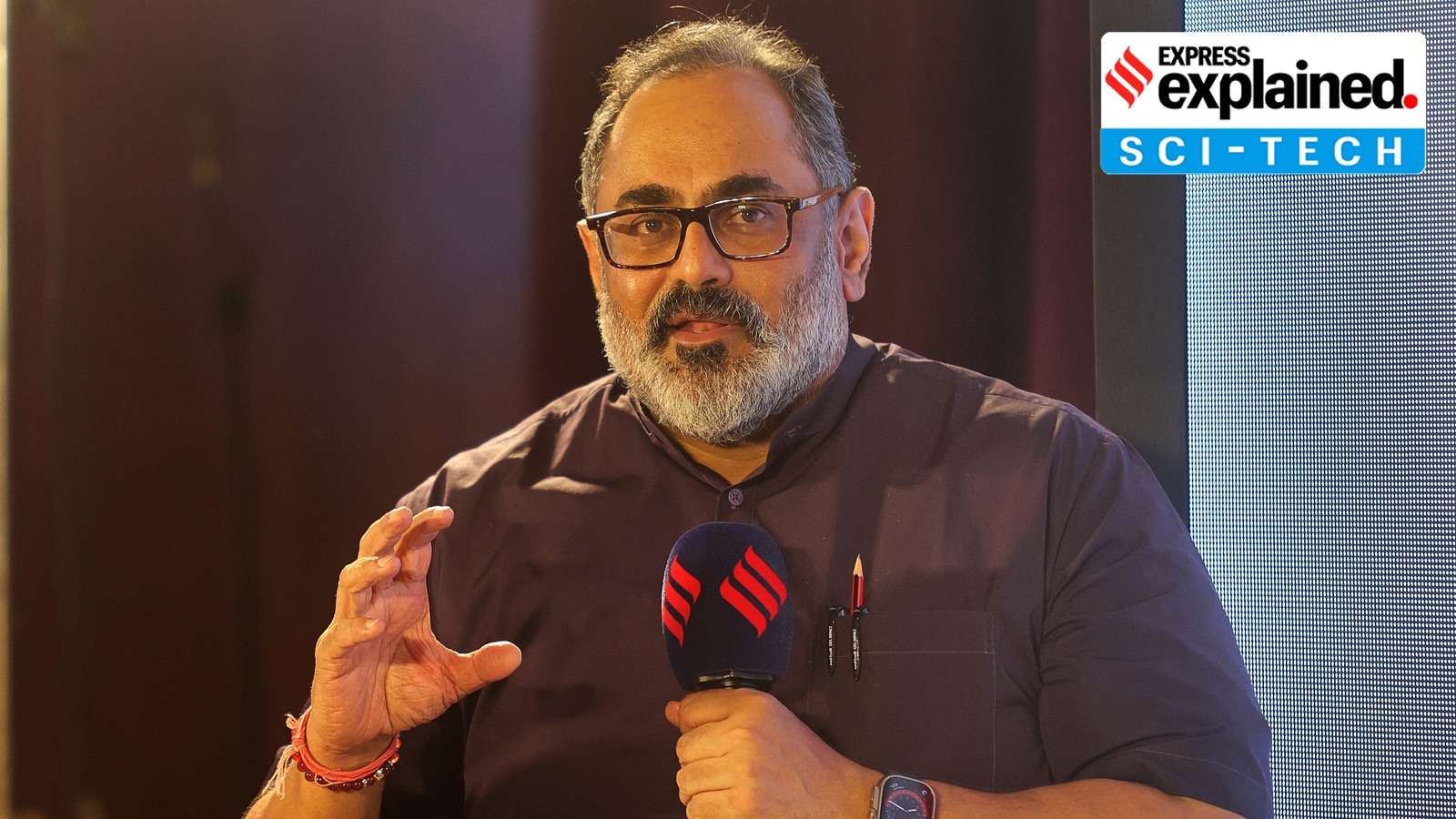India has pitched itself as a country that has effectively used technology to develop and deliver governance solutions at a mass scale. The examples it cites to support the argument, especially made to nations in the Global South, include the biometric identity programme Aadhaar and payments solution Unified Payments Interface (UPI).

Now, India wants to take the same DPI approach with artificial intelligence (AI).
“We are determined that we must have our own sovereign AI. We can take two options. One is to say, as long as there is an AI ecosystem in India whether that is driven by Google, Meta, Indian startups, and Indian companies, we should be happy about it. But we certainly don’t think that is enough,” Minister of State for Electronics Rajeev Chandrasekhar said during an event organised by the Financial Express on Wednesday (November 29).
With sovereign AI and an AI compute infrastructure (the software and hardware needed to build AI-powered systems), the government is not looking to just compete with the generative AI type of model. It also wants to focus on real-life use cases in healthcare, agriculture, governance, language translation, etc, to maximise economic development, he added.
What is India’s plan for controlling its own AI?
Last May, the Ministry of Electronics and IT (MeitY) released a draft of the National Data Governance Framework Policy under which it proposed the creation of an India Datasets platform, which will consist of non-personal and anonymised datasets from Central government entities that have collected data from Indian citizens or those in India.
The idea is that the non-personal data housed within this programme would be accessible to startups and Indian researchers, the draft proposal said. Among the stated objectives of the policy is to modernise the government’s data collection, with an aim to improve governance and to enable artificial intelligence (AI) and data-led research and startup ecosystem in the country.
Story continues below this ad
This October, a report released by a working group constituted by the IT Ministry said the India datasets program is a “unified national data sharing and exchange platform to enable various data sharing and exchange use cases of all stakeholders including but not limited to Central/State/UT Governments, public sector undertaking, private sector companies, industry bodies, MSMEs (micro, small and medium enterprises) and startups, academia and researchers, civil society and media organisations, open technology communities, etc.”
Non-personal data held by the Indian datasets platform could also be monetised, the report suggests. The platform, as per the report, will play a crucial role in boosting the artificial intelligence ecosystem in India by providing a “robust foundation” for data-driven innovation and development.
How will India regulate AI?
Since the country believes that AI can bring about big changes in its digital economy, it is going to be reflected in the laws governing the technology that are introduced going forward.
Chandrasekhar said that Europe’s approach is based inherently on regulation for the rights of the citizens and the US approaches this from a point of regulation for markets. “Our approach will be a hybrid of both,” he said.
Story continues below this ad
The Indian Express had earlier reported that the Centre is considering issuing a directive to big tech companies like Facebook, Google and Amazon to share anonymised personal data in their possession with a government-backed database.
The directive, which is understood to be part of the draft Digital India Bill, could mandate big tech companies to deposit all the non-personal data they hold to the India datasets platform. However, it is worth noting that the Bill will not be released before the next general election in 2024 and will be taken up by the next government.
The idea of harnessing economic benefits from aggregated non-personal datasets was first proposed by a MeitY-appointed committee chaired by Infosys co-founder Kris Gopalakrishnan. In a draft report of January 2021, the committee recommended the identification of certain “high value datasets” which could be shared for the purpose of encouraging innovation and ensuring national security.








































